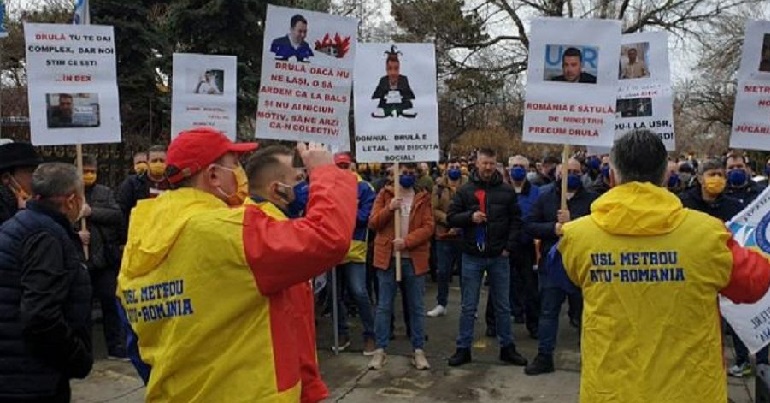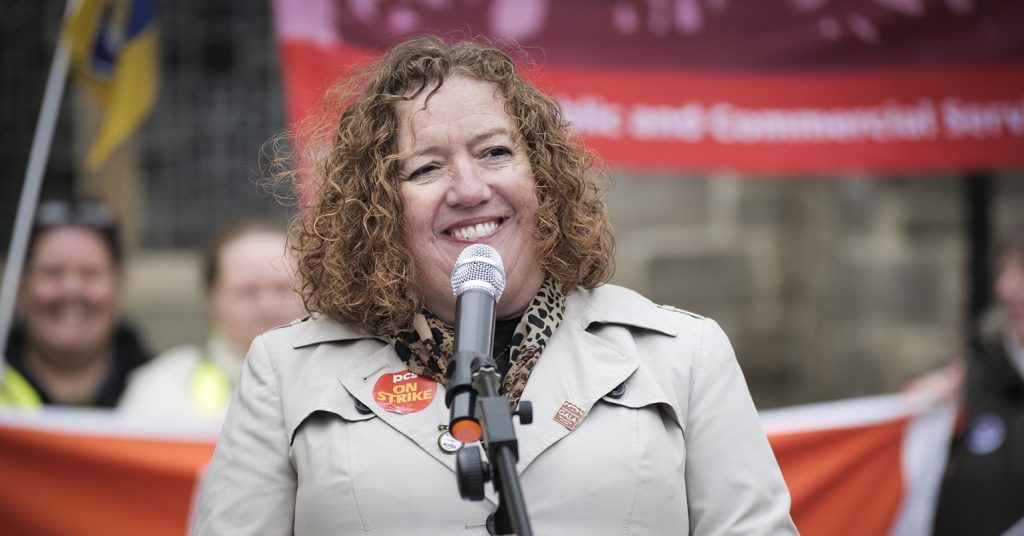Pan-European union condemns “union-busting” in Romania

The European Transport Workers Federation (ETF) has condemned “union-busting” in Romania.
ETF president Frank Moreels and General Secretary, Livia Spera led a fact-finding mission to Bucharest last month and reported trade unions were under ‘enormous pressure’. They added that dialogue between unions and bosses is virtually non-existent.
The mission came after the USLM union accused Metrodex, the state-owned operator of Bucharest’s metro system, of intimidation.
In March, USLM blocked operation of the capital city’s metro after a dispute over commercial space in stations, along with fears of wage cuts and layoffs. The union also accused the government of failing to engage in dialogue.
In July, members of Romania’s anti-corruption agency raided USLM headquarters and detained parts of its leadership. Police have also began surveilling USLM leader Ion Rădoi who has been accused of corruption.
ETF has condemned the actions of Romanian authorities. Spera said:
The continued union-busting and intimidation tactics used in Romania against the legitimate concerns of USLM and metro workers in Bucharest are unacceptable.
We call on the Romanian authorities and Metrorex to drop these tactics and engage in social dialogue, respecting the European model.
Tensions between workers, unions, and managers are not new in Romania.
Cuts in public sector spending began in 2009 after a €20 billion loan from the EU and IMF in response to the financial crisis. Like many EU recovery packages, the loan contained the condition that Romania keep a minimum budget deficit, which put a strain on government spending. Credit agencies had given Romania a ‘junk’ rating at the time.
Part of the government’s response was to loosen labour laws. In 2011, the Democratic-Liberal government passed laws making it easier to dismiss the concerns of workers. In 2017, striking workers at a cable car factory in the city of Bistrita were sacked or forced to resign.
Before the IMF-EU loan, the power of unions had been decreasing. Romania has decreased the role of the state in the economy since 1990. The country has broadly followed a path of increased productivity and low wage growth.
In July, trade unionists finished a 2000km protest against low wages. Members of the Carta-Afla trade union travelled from Bucharest to the EU Commission in Brussels. Their general secretary called for “a policy that abandons the model of low wages and the exploitation of workers.”
Meanwhile, the ETF has promised a detailed report on the labour environment in Romania. Moreels commented:
Social dialogue is a normal process in every democracy, it is the top proof that the political leadership of a country cares for its citizens who actively contribute to keeping the national economy going.
PS. We hope you enjoyed this article. Bright Green has got big plans for the future to publish many more articles like this. You can help make that happen. Please donate to Bright Green now.




Leave a Reply